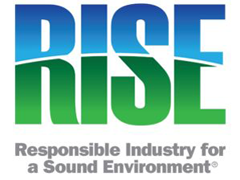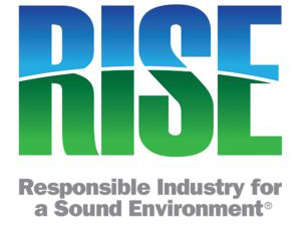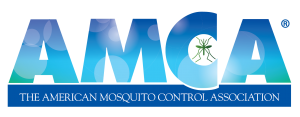(Washington, D.C., June 1, 2020) – With hurricane season officially beginning today, RISE (Responsible Industry for a Sound Environment) and the American Mosquito Control Association (AMCA) are promoting awareness about the importance of preventing, removing and treating standing water to combat the spread of disease through mosquitoes. In the aftermath of a hurricane, impacted areas can become breeding grounds for mosquitoes often due to the combination of deep floodwaters, downed trees and overgrown grass. Attention to standing water before and after a hurricane can help prevent conditions that lead to mosquitoes multiplying and spreading disease.
“We encourage every person and community in a hurricane zone to properly prepare to combat the growth of mosquitoes,” shares Megan Provost, President of RISE. “Disease spreads in multiple ways, and it’s critical to prevent the spread of those that are vector-borne, such as West Nile Virus. All members of a community benefit when individuals take the right precautions, including emptying standing water and using mosquito-repellents approved by the U.S. Environmental Protection Agency. The specialty pesticide and fertilizer industry remains committed to supporting communities as we all work to prevent the spread of disease and protect public health.”
“In the aftermath of severe and prolonged rains from hurricanes, the receding waters leave pools of standing water in new areas where they didn’t previously exist. Combined with the summer heat speeding reproduction, the result can be a drastic increase in mosquito populations,” says Joe Conlon, AMCA Technical Advisor. “Homeowners can help mitigate these mosquito problems by taking steps prior to a storm to reduce areas where standing water might accumulate around the home.”
Steps to prevent or lessen the chance of contracting a mosquito-borne disease before and after a storm include:
- Drain all standing water and prevent water accumulation when possible. Check all areas that might hold water, such as tire swings, buckets, bottles, birdbaths, pet bowls, flowerpot saucers, pool toys, and even bottle caps. Cover trash containers and store boats covered or upside down, or remove rainwater weekly from boats.
- Fill in or drain low places in your yard (e.g., puddles, ruts, hollow stumps) and keep grass cut short and shrubbery well-trimmed to eliminate harborage for mosquitoes and other potentially harmful pests.
- Keep roof gutters free of leaves and other debris.
- Avoid activities during dawn and dusk when mosquitoes are most active.
- Avoid damp grass, which attracts mosquitoes, when taking part in outdoor activities.
- Dress appropriately in long sleeves and pants.
- Defend yourself against mosquitoes with an EPA-approved repellent. Read more from the Centers for Disease Control and Prevention (CDC).
- Ensure all doors and windows are intact to prevent mosquitoes from coming in and out of your home.
RISE is the national association leading the way in meaningful conversations about specialty pesticides and fertilizers. AMCA represents over 1,600 individuals and public agencies engaged in mosquito control, mosquito research and related activities globally. Read more about mosquito prevention, including after hurricanes, on DebugtheMyths, an educational website provided by RISE. More information about preventing mosquito bites is available from the CDC on the web pages, Stay Safe After a Hurricane or Other Tropical Storm and West Nile virus: Prevention. To date, fortunately, there is no evidence to suggest that the new coronavirus can spread through mosquito-transmission, as shared by the World Health Organization.
xxx
For more information contact:
Whitney Gray, RISE, (202) 872-3845, wgray@pestfacts.org
Joe Conlon, AMCA, (904) 215-9660, conlonamcata@gmail.com
About RISE
RISE (Responsible Industry for a Sound Environment)® is the national trade association representing manufacturers, formulators, distributors and other industry leaders in the specialty pesticide and fertilizer industry. Visit the RISE website at www.pestfacts.org for more information. Follow RISE on Twitter at @PestFacts or on LinkedIn at www.linkedin.com/company/RISEPestFacts.
About the American Mosquito Control Association
Celebrating 85 years of protecting public health in 2020, the American Mosquito Control Association (AMCA) is an international not-for-profit public service professional association. With over 1,600 members worldwide in over 50 countries, AMCA is international in scope, and includes individuals and public agencies engaged in mosquito control, mosquito research and related activities. Please visit AMCA online at www.mosquito.org and follow AMCA on Twitter @AMCAtweets.


